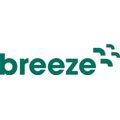Yoho Mobile permet à chaque utilisateur de créer son propre forfait eSIM personnalisé, parfaitement adapté aux jours et à la capacité de données souhaités. Économisez jusqu'à 99 % sur les frais d'itinérance avec Yoho Mobile. Nous offrons également une assistance client 24h/24 et 7j/7, pour vous assurer d'être parfaitement préparé avant le début de votre voyage et vous offrir une tranquillité d'esprit à chaque étape.

Yoho Mobile permet à chaque utilisateur de créer son propre forfait eSIM personnalisé, parfaitement adapté aux jours et à la capacité de données souhaités. Économisez jusqu'à 99 % sur les frais d'itinérance avec Yoho Mobile. Nous offrons également une assistance client 24h/24 et 7j/7, pour vous assurer d'être parfaitement préparé avant le début de votre voyage et vous offrir une tranquillité d'esprit à chaque étape.
Forfaits de données eSIM Yoho Mobile pour le Pérou
Questions fréquemment posées
Yoho Mobile propose-t-il une eSIM à données illimitées pour le Pérou?
Yoho Mobile propose des plans eSIM sans limite de données pour Pérou. La ligne South America A Unlimited de la société offre une gamme d’options de validité, allant de 1 jour à 30 jours, coûtant entre 8 , 97 $ et 247 , 32 $ selon la durée choisie. Chacun de ces plans est délivré sur les réseaux 5G et inclut une vitesse normale maximale de 5 000 kbps, mais les vitesses peuvent être limitées après un usage intensif conformément à une politique d’utilisation équitable. Les voyageurs qui s’inquiètent d’éventuelles restrictions de vitesse devraient contacter directement Yoho Mobile pour confirmer si la politique d’utilisation équitable s’applique et le montant typique de données restant à vitesse normale.
Yoho Mobile propose-t-il une eSIM au Pérou avec numéro de téléphone et SMS ?
Yoho Mobile ne propose pas de plans eSIM Peru qui incluent un numéro de téléphone local ou la capacité d’envoyer des SMS. La société ne propose que des eSIMs dédiées aux données pour les voyageurs vers le Pérou. Les voyageurs qui ont besoin de passer des appels vocaux ou d’envoyer des messages texte peuvent utiliser des applications VoIP populaires telles que WhatsApp, Telegram ou iMessage sur la connexion de données, car elles ne reposent pas sur un numéro de téléphone mobile traditionnel.
Combien de forfaits de données Yoho Mobile propose-t-il pour le Pérou ?
Yoho Mobile offre 35 plans mono‑pays et 84 plans multi‑pays couvrant le Pérou. Les plans varient en prix, de 1, 96 $ à 247, 32 $, et en allocation de données, de 300 Mo à illimité. Certains plans disposent d’un plafond de données fixe, offrant une quantité de données déterminée pour la période de validité, tandis que d’autres utilisent un plafond de données quotidien, limitant la quantité pouvant être utilisée chaque jour pendant la durée du plan.
Résumé avec Gen AI. Dernière mise à jour:




